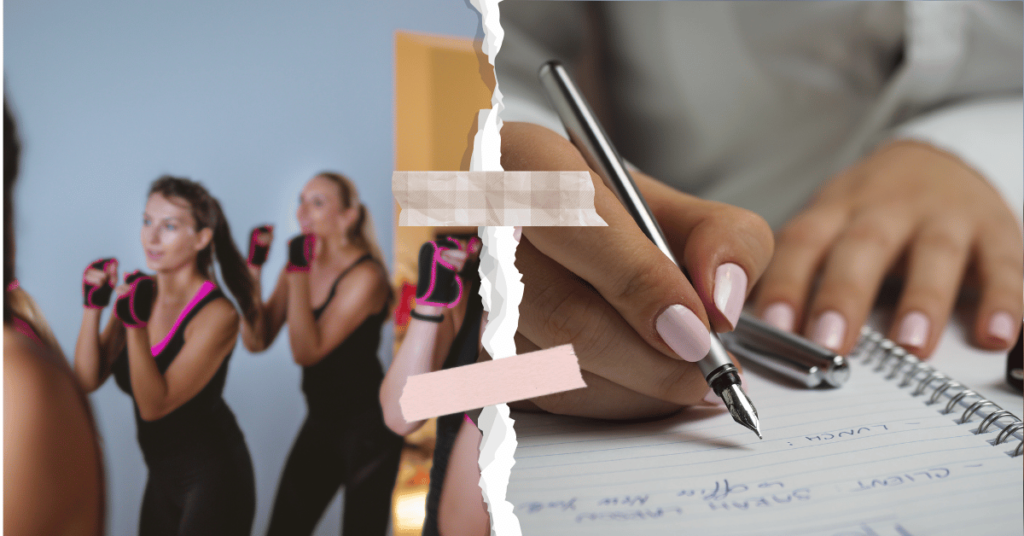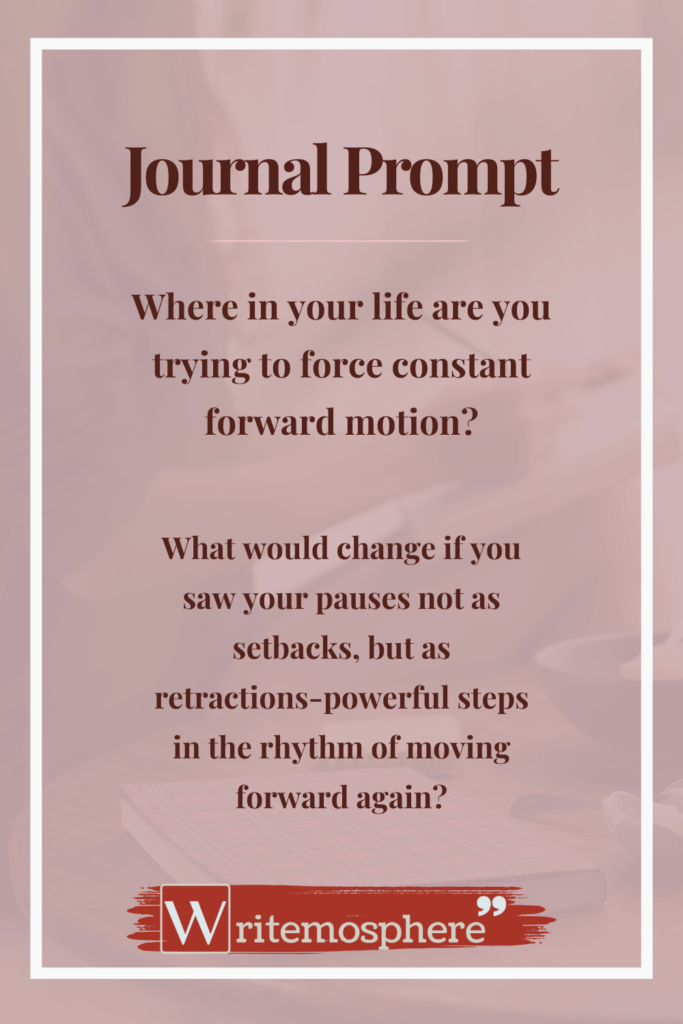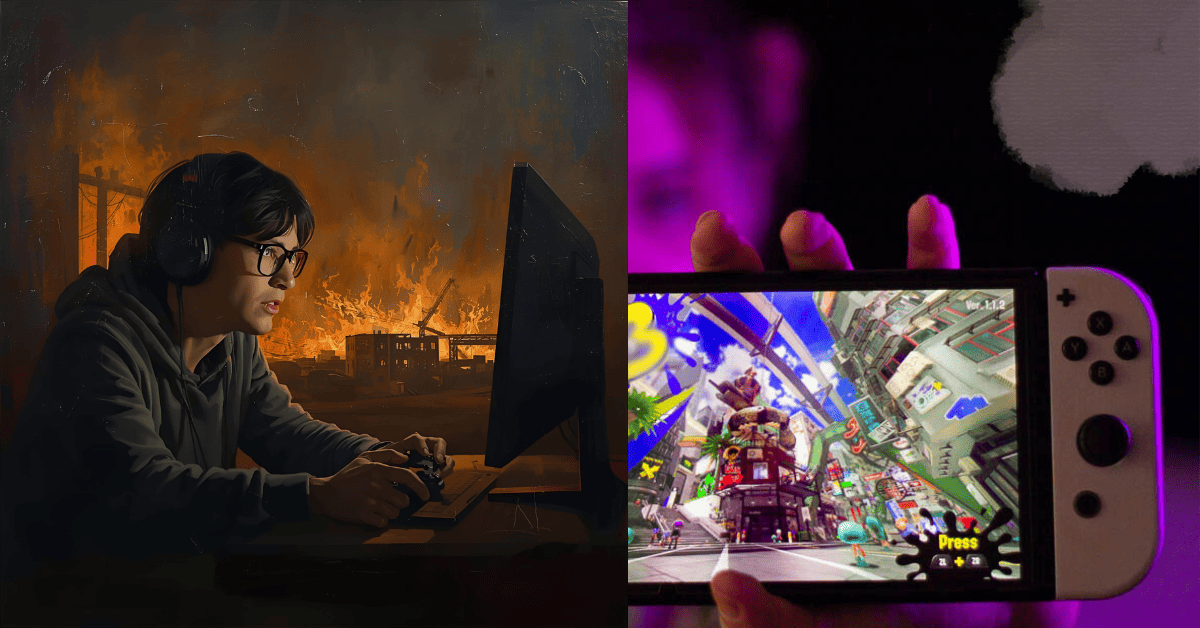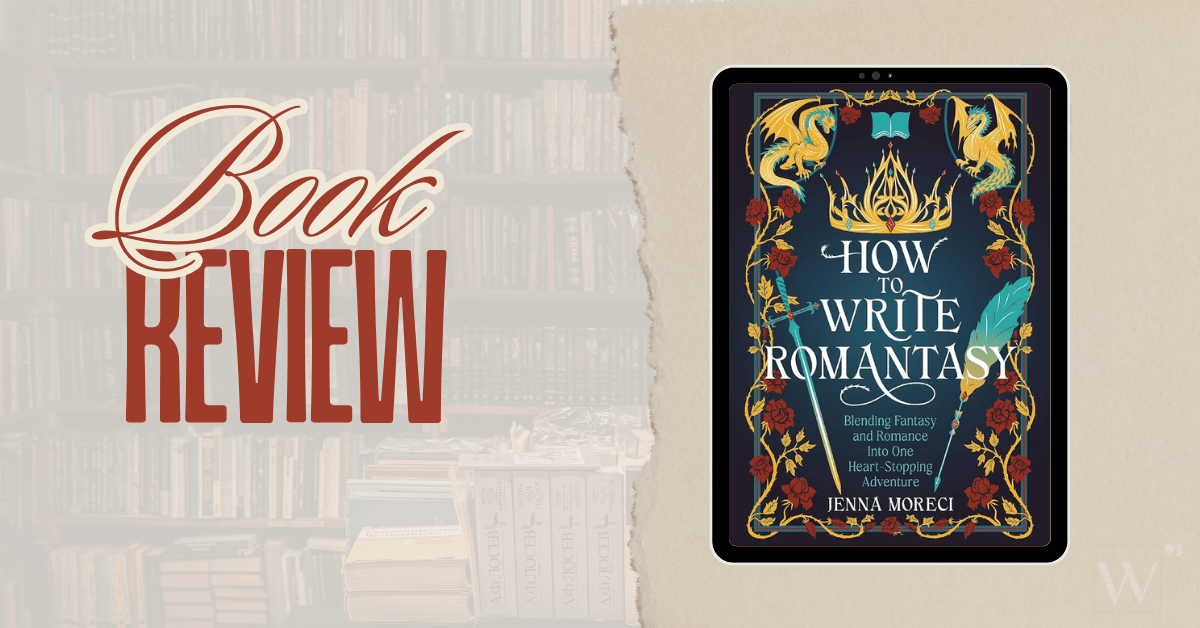The Power of Retraction
A few months ago, I was sitting in Body Combat, sulking like a gremlin. Everything in my life felt too slow. Too stuck. Too resistant to the kind of forward momentum I wanted.
And then my instructor suddenly paused the music. She’s not one for pep talks or life lessons, just blunt reminders about our form or technique. But that day, she told us all that we were all forgetting to keep our guard up. She said if we were actually in a fight, we wouldn’t be standing for long. Then, at the end of class, she added:
“It’s not going forward that matters. It’s coming back. You can only provide a quality punch or kick if you focus on the retraction.”
I realized how much this applies to everything: writing, creating, life. We glorify forward motion: output, hustle, the next big thing, productivity, showing up. But what about the deliberate pause, the pulling back, the re-centering that makes the next move precise and powerful?
That line landed like a proverbial punch. I was sitting in my own head, frustrated about not making progress fast enough, annoyed at setbacks, craving speed. And there she was, pointing out that the real power comes not from the strike, but from how you pull back and prepare to strike again.
It made me remember something I overheard at the beach last summer. Someone said, “The pause is as important as the music.” Just a fragment of conversation, overheard by accident, but it stuck with me. Like the universe has a funny way of delivering reminders when we need them most and least expect them.
Both moments carried the same truth: the pause, the retreat, the coming back matter as much as the forward motion.
And that truth has been written all over my year. The Power of Retraction.
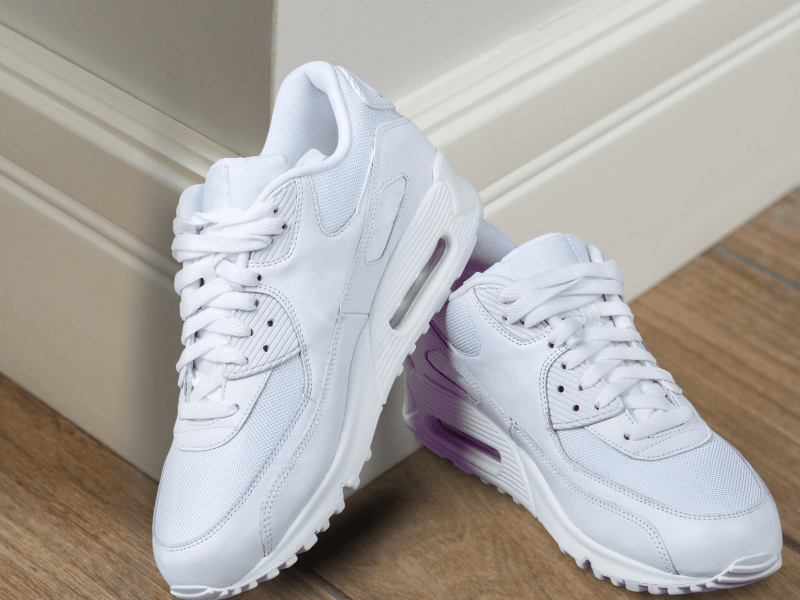
Lessons From the Gym Floor
Earlier this year, I had a major setback. One second I was fine, training four to six times a week, full of rhythm and routine. I redescovered movement as something enjoyable. Then, the next second, I sprained my ankle. Grade 2. Pain, swelling, the whole package, like I had grown a knee on my ankle. Suddenly I went from being active to sitting with my foot elevated, days blurring together, the sting of lost momentum heavier than the physical pain.
That sprain forced me into a pause I never wanted.
It stalled my fitness journey. It halted the progress I had worked for. And it forced me to recognize something I hadn’t noticed: how much I had taken my body for granted. Walking, running, jumping, throwing kicks without hesitation. It all felt natural, automatic. Until it wasn’t. Even writing came at a cost, because I wasn’t able to sit at my desk without pain.
When I lost that freedom, I realized how miraculous it actually was.
And that’s the part no one tells you about setbacks. They strip away the illusion of permanence. They highlight the privilege of normal. They force you to see that progress is, beyond moving forward, about being able to move at all.

When Setbacks Change the Journey
In those weeks of rest, I hated the pause. I felt trapped in it. But something shifted once I accepted it.
I had time to watch my body repair itself, slowly, day by day. I read more. I rested more. I even picked up crochet, which is the kind of hobby I never thought I’d have the patience for. Within days I had crocheted bacon strips, coasters, and eventually a wonkyt Stardew Valley junimo. It wasn’t the summer I had planned, but it gave me something new.
I managed to turn this pause, this empty space, into a place for healing, not just physically, but spiritually as well.
It taught me that fitness isn’t punishment, it’s a celebration. That my body isn’t a machine for constant productivity, but a living thing that deserves rhythm, not abuse. That an active lifestyle doesn´t mean comparison or competition, and should be where you honorthe joy of movement, the grace of being in a body that works, that heals, that evolves.
And it reminded me, painfully but clearly, that setbacks don’t cancel the journey. They shape it.
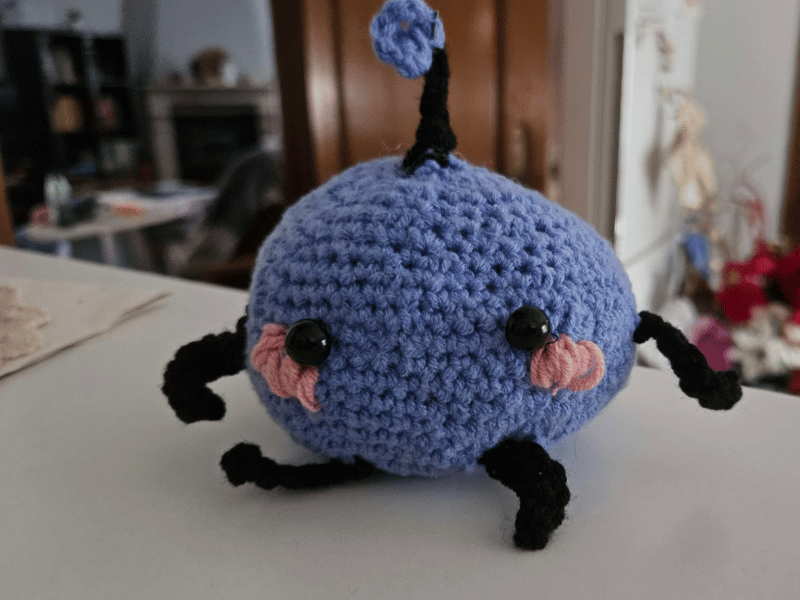
The Pause That Teaches
Now, three months later, I’m back in action. Not completely recovered yet, as I still have to adapt, but very close to what it was like before. And I feel that lesson differently. It’s not just about the punch. It’s about the retraction, the recovery, the deliberate act of coming back.
In writing, in fitness, in life, we want constant forward motion. We want the analytics to rise, the word count to grow, the strength to build week by week. But real growth takes time. It’s momentum and pause, strike and retraction, music and silence.
The frustration of pausing is real. The pain is real. But so is the power of return.
And maybe that’s what I’m still learning: to trust the pauses, to respect the retractions, to see them not as failure but as the foundation for the next punch. That my body should be honored. while it was painful, I got to witness my body reparing itself. Working in its perfection. How many times do we bitch about our bodies and our insecurities, and don’t stop to appreciate how perfect they are already?

Moving Forward By Coming Back
After all this, I keep circling back to that one line from class: it’s not going forward that matters, it’s coming back. The pauses I fought against ended up teaching me more than the constant push ever could.
Maybe we need to stop treating retraction as failure, and instead see it as rhythm. As sacred. Power is built in the return, not just the strike.
So here’s the question I’ve been sitting with, and maybe you want to sit with it too:
🪞 Journal Prompt
Where in my life am I trying to push forward when I actually need to pull back?
What does retraction look like in my creative work, relationships, or self-care right now?
Newsletter
Did you like this post? Join now for the latest news and exclusive tips!

